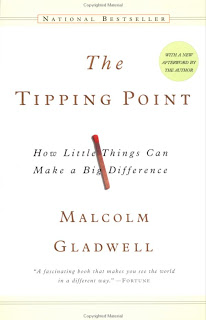Laurie Kelley
October 25, 2010

PPACA—mean anything to you? It’s the new Patient Protection and Affordable Care Act, the historic health care reform bill that was signed into law earlier this year. It’s the thing that has the upcoming Congressional elections electrified. It has some calling Obama a socialist, others calling him a savior. Beyond the rhetoric, though, how does it or will it impact those with bleeding disorders? (Photo: Kaaren Zielinski)
That was the topic this weekend in McLean, Virginia, for the Hemophilia of the Capital Area’s annual meeting. We brought “Pulse On The Road” to the meeting: POTR is a two-hour symposium dedicated to explaining health care reform, and answering audience members’ questions.
We opened Saturday morning with a story from Kaaren Zielinski from New York City. Kaaren’s story was profiled in the 2008 edition of PEN’s Insurance Pulse. It was so compelling that we asked her to share it with the audience. She had faithfully read her insurance policy annually, but the one year she did not… it changed. Previously she had no cap and bought factor whenever she needed for her son Michael, who used quite a lot; that year, the policy changed, a cap was installed and they blew through it in no time. In fact, they hit their limit three times before the insurance company finally told her! Too late—she now had no insurance. Kaaren noted that while the new PPACA will no longer allow caps, to our benefit, we should still maintain a vigilant watch over our policies. No one knows quite how the Congressional chips will land in another week, or how insurers will react to the new law over time. Everyone must read their policy and keep current with it.

James Romano of Patient Services Inc. (PSI) then gave a great overview of the PPACA and what we can expect in the coming years as it is phased in. Listening to him, I realized that there is an overwhelming amount of things to know, and that audience members could probably use a short glossary of terms. We all would like to think that insurance problems will get easier with the new laws, but James assured us that this is just the beginning. Again, the message is we all need to be vigilant and read, ask questions and never become complacent.
Community Forum followed for the next hour. Joining us were: Mike Bradley, Vice President, Healthcare Economics and Reimbursement for Baxter BioScience; Kisa Carter, director, Public Policy at HFA; Ruthlyn Noel, director of public policy, NHF; Mary Jane Berry, social worker at Georgetown University Hospital; and Jim Romano. The audience asked all sorts of questions related to health care reform. One mother asked what was the difference between annual caps and lifetime caps—great question. Another asked about physical therapy—would this be limited under the new reform? Someone in the back asked about whether in retaliation insurers would look to limited brand of factor access, or maybe limit homecare options? After all, someone has to pay for this and insurers will attempt to shift costs and expenses away from themselves. This stirred a lively debate for the hour.

The questions gave the panel ideas for the next time we meet, which will be in 2011. We hope to bring six more Pulse On The Road events to various chapters.
We closed the meeting with a motivational talk by Andy Matthews, long time friend and colleague. He stressed the need for teens especially to get more involved in their healthcare insurance management, but also for everyone not to see hemophilia as anything but a gift, a gift that allows us to connect as people, a gift that allows us to put life in better perspective and to see that even the heath care concerns we have make us stronger, and better equipped for life’s challenges. And Andy would know, as his story is so compelling. 
The overall message of the day? Keep reading and getting educated about insurance reform; never think that someone else will take care of you and inform you of any changes—you must proactively find out what changes are being made to your plan. And be grateful—no matter how worrisome the times may be, in America, we still have the best care on earth and remain the largest factor market. One thing we have more than anyone is factor, and people who are dedicated to keeping you informed about health care reform.
Thanks to Sandi Qualley and her team for allowing us to bring Pulse On The Road to her chapter; thanks to the speakers for sharing the day with us; and thanks to Baxter BioScience for funding this much-needed resource to our community.
Great Book I Read
To Kill a Mockingbird by Harper Lee. 
I read this in one sitting on the plane to India last month and could not put it down. Unforgettable characters and a timeless story of childhood during a time of racism and poverty in the Great Depression. Many of you may have seen the movie, which is excellent, and completely faithful to the book. Jem and his sister Scout endure a small town’s racism during the 1930s as their father serves as defense attorney for a black man wrongly accused of a crime against a white woman. A parallel story emerges about a neighbor who never comes out of his house, and is the focus of ridicule and suspicion, even by the children. The lessons learned about how we treat each other when we think that being different means being menacing, and how belief in the goodness of human nature will eventually win. Four stars.








